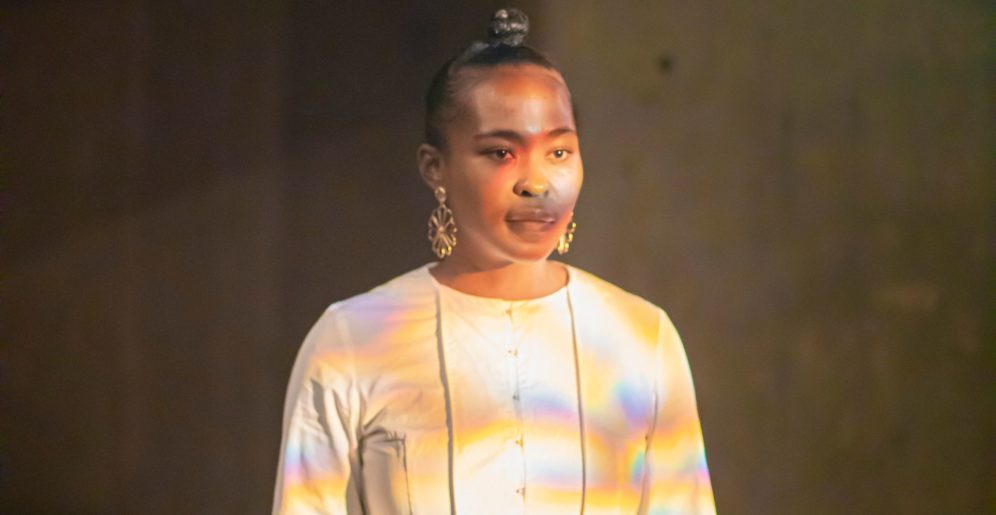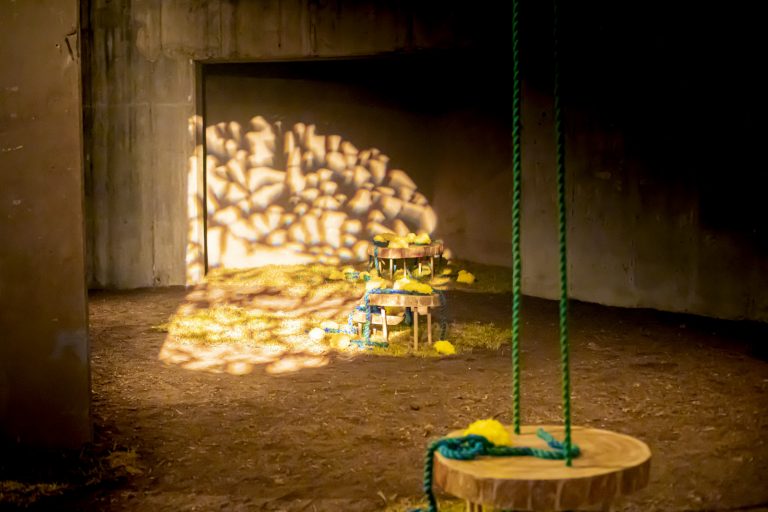
Art
Buhlebezwe Siwani’s ‘IYEZA’ Demands All Of Your Senses
As children, we spend a lot of time exploring our senses. From our tastebuds to our motorized skills, our caregivers introduce us to food, and new sights, to name a few. But what about art? It’s always interesting to see how artists are treated throughout human history. Without fine artists, we wouldn’t know what the Battle of Gettysburg looked like. We wouldn’t have an idea of what the Last Supper may have looked like. Without writers (yes, writers are creative artists too), we wouldn’t have any idea of ancient cultures.
For Buhlebezwe Siwani, art should be immersive, and all-encompassing, to say the least. More than that, art draws on all of the senses and demands complete attention. This month, people in Johannesburg, South Africa are invited to interact with Buhlebezwe’s most recent installation at the Standard Bank Gallery.
Drawing on her knowledge and lived experience as a traditional healer, a sangoma and inyanga, Siwani presents IYEZA a solo exhibition dedicated to our ancestors and land. Known for her poignant photographs, sculpture work and installations, Buhlebezwe demands your attention with her latest creative export.
Creating IYEZA
 When she began working on this collection in 2020, the world as we know it was very different. COVID-19 forced all of us indoors and we tried our best to stay safe amidst a pandemic that rocked the world. On her inspiration at the time, Buhlebezwe notes, “At that point in time I was really thinking about medicines; the way in which traditional medicines are used and the way in which traditional healers are approached by big pharmaceutical companies, how these pharmaceutical companies co-opt their methods of healing. I was also thinking about the land and what it gives us. Who we are on the land.”
When she began working on this collection in 2020, the world as we know it was very different. COVID-19 forced all of us indoors and we tried our best to stay safe amidst a pandemic that rocked the world. On her inspiration at the time, Buhlebezwe notes, “At that point in time I was really thinking about medicines; the way in which traditional medicines are used and the way in which traditional healers are approached by big pharmaceutical companies, how these pharmaceutical companies co-opt their methods of healing. I was also thinking about the land and what it gives us. Who we are on the land.”
Beyond the land, Buhlebezwe’s IYEZA pays close consideration to the seas and the sky, particularly how Black bodies interact with them. “Our ancestors used the skies as navigational tools and also as a means to find food. Basically, ways in which the earth on which we live gave meaning to life for use. As black bodies. As indigenous bodies,” she goes on to explain.
When you visit the IYEZA installation at Standard Bank Gallery, there are moments where visitors are asked to remove their shoes to walk through two of the exhibits. Regarding the importance of engaging the senses when taking in works of art Siwani shares, “You know it’s often said that you eat with your eyes, but sometimes smells are also reminiscent of something. So it’s not only what you’re looking at, it’s the smell that evokes something. It’s the feet, it’s the body that feels something. I think it’s necessary that all five senses are engaged so that the work you can feel it every single level…we’re multi-sensory beings.”
Black African history, religion, and art

Interestingly, as the world seeks out traditional medicines and healing methods, there’s active discourse criticizing non-monotheistic cultural practices. As a sangoma and inyanga, Buhlebezwe’s spiritual practices fall outside of monotheistic religious dogma. “I generally don’t expect people to walk in respecting [my work and practice]. I assume that as human beings we respect each other. First I’d just like to engage you on a human level.” she begins. “What I try and do constantly with my own work is to make sure that the work maintains some sort of integrity. Although it is art, I think it’s important that it retains some sort of integrity and honesty.”
Fundamentally, Buhlebezwe puts forward that we all have ancestors. More so that all religious and spiritual practices require some level of interrogation at any given point. Specific to her own practice, she understands that there isn’t as much respect. In South Africa, the Witchcraft Act of 1958 made sure of that. However, even though she isn’t asking for the same respect afforded to Jewish, Catholic, and Muslim folk, for example, she refuses to be ashamed. When engaging her work and practice, Siwani notes, “Either you participate respectfully, or you don’t participate at all.”
At the end of the day, in the words of Buhlebezwe Siwani, “Art is a marker of where we are as people.” As the world looks towards its past, its ancestors, and its history for healing, it should come as no surprise that the art of this rising star would do the same.
Get The Latest
Signup for the AFROPUNK newsletter



